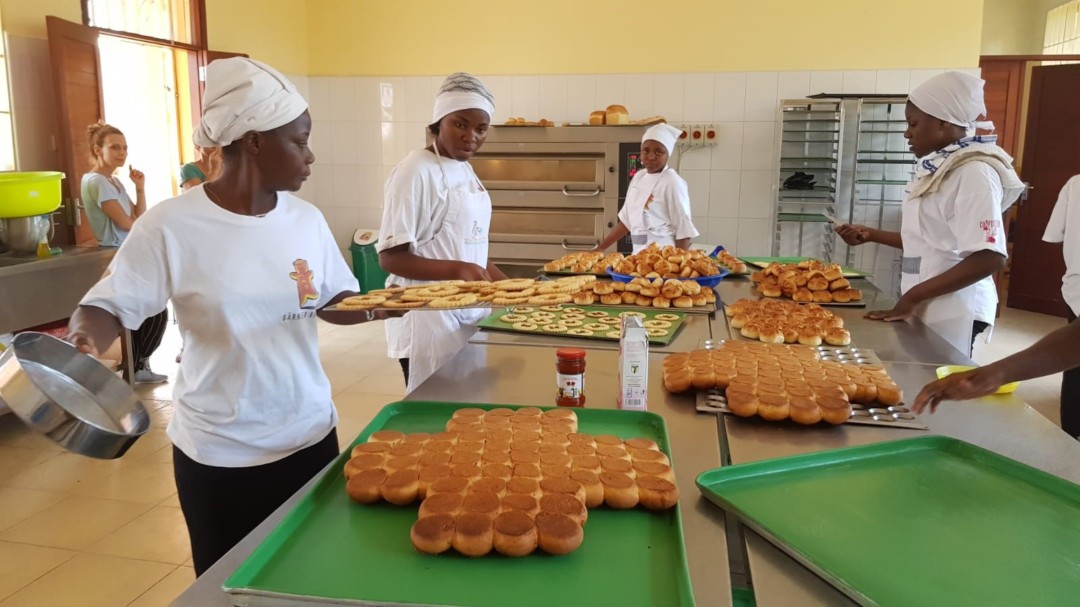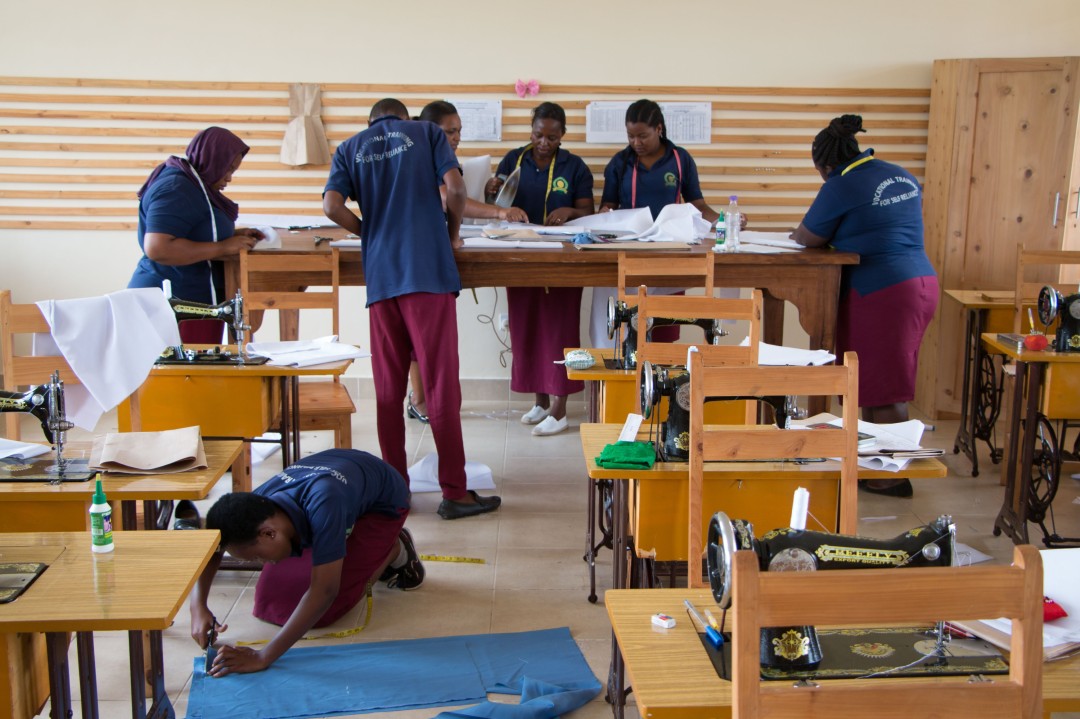A vocational education and training centre
The project aimed to construct and equip the two first three-classroom blocks of the Tuwapende Watoto Vocational Education and Training Centre (VETC). The project was to provide six-month training courses in baking and two–year training courses in horticulture and tailoring to over 50 students. The training courses combined theory and practice. Graduates who successfully complete their course would be provided with additional support in the form of tools and micro-credits to enable them to set up their own business, or would be assisted in gaining employment, to enable young people to become self-reliant.
The two first three classroom blocks of the Tuwapende Watoto VETC were successfully constructed and inaugurated in 2018. By the end of the project, ten tailoring apprentices, two horticulture apprentices and nine bakery/food production apprentices had completed their two-year course and taken the Government-accredited vocational and education examination in theory and practical work. All the apprentices are currently employed. Apprentices sold their products (bags, clothes, vegetables, fruits and baked goods), enabling them to gain experience as vendors and in market orientation and timely production. Short information and communication technology (ICT) courses were delivered for the local population at weekends.
Founded in Switzerland in 2004, the Tuwapende Watoto Foundation (which means “We love children”) provides orphaned and abandoned children in Dar-es-Salam, Tanzania, with a caring home and a good quality education for their future.
Type
Education / Environment / Community DevelopmentDuration
1 janvier 2016 - 31 décembre 2019Location
Bunju B, Dar -es- Salaam / TanzaniaWith whom
The Tuwapende Watoto Foundation
Website



Tanzania
Population
57.3 million (2017)
Per Capita Income
USD 920/year
Poverty rate *
28% (2011)
Literacy rate
78% (2016)
Human Development Index
154TH OUT OF 189 COUNTRIES (2018)
Tanzania has experienced high and relatively stable growth rates over the past decade. At the same time, Tanzania is lagging in primary school completion, maternal health, poverty eradication, malnutrition and environmental sustainability. While the poverty rate has recently declined, the absolute number of the poor has not changed due to the fast pace of population growth (3% per annum). It has made little progress towards reducing extreme hunger and malnutrition, particularly in rural areas. However, scrapping contributions for primary and secondary school has drastically increased primary school enrolment.
Sources: World Food Program, UNICEF, World Bank, 2016 Human Development Report, Human Development Indices and Indicators (2018 Statistical Update)
*The percentage of the population living below the national poverty line.